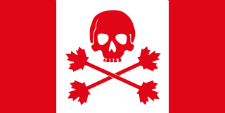Movie studio Voltage Pictures is no stranger to suing BitTorrent users.
The company has filed numerous lawsuits against alleged pirates in the United States, Europe, Canada and Australia, and is believed to have made a lot of money doing so.
In 2016, Voltage launched a “reverse class action” in Canada to demand damages from tens of thousands of Internet users whom they accuse of sharing films, including The Cobbler, Pay the Ghost, Good Kill, Fathers and Daughters, and American Heist.
This meant that, in a single swoop, many Internet subscribers were at risk of having their personal details exposed. However, Internet provider Rogers was not willing to hand over this information freely.
Instead, the ISP demanded compensation for every IP-address lookup, as is permitted by copyright law. The provider asked for $100 per hour of work, plus taxes, to link the addresses to subscriber accounts.
The Federal Court initially agreed that the charges were permitted under the Copyright Act. However, when Voltage Pictures appealed the decision, this was reversed. Unhappy with this outcome, Rogers took the matter to the Supreme Court
In a 9-0 decision, the Supreme Court ruled in Rogers’ favor this week. The Internet provider is entitled to recover costs to link IP-addressed to customer details. Exactly how much will be determined in a future Federal Court hearing.
Justice Russell Brown argues that while the costs may be relatively small, they are not negligible, as the Court of Appeal argued.
“While these costs, even when combined, may well be small, I would not assume that they will always be ‘negligible’, as the Federal Court of Appeal anticipates,” the Judge writes.
According to Justice Brown, “an ISP is entitled to the reasonable costs of steps that are necessary to discern a person’s identity.”
The scale of the costs Rogers can recover will play a major role in the profitability of these file-sharing cases. In the event the costs are set relatively high, Voltage and other copyright holders may have to try their luck elsewhere.
David Watt, Rogers senior vice-president of regulatory affairs, is happy with the ruling and told the local press that it’s “an important win for our customers and millions of internet subscribers facing open season on their personal information.”


 Movie studio Voltage Pictures is
Movie studio Voltage Pictures is 



